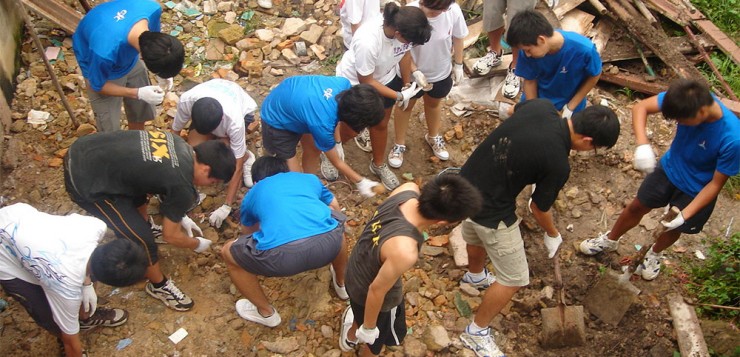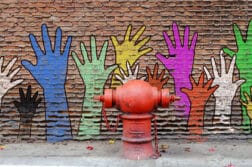Some people think that university education is disconnected from the everyday realities of real life. They say that college professors are locked in an ivory tower where they make up a world as remarkable as a Disney princess in an animated film. Others accuse universities of being stuck in the past because old, white-haired men have been talking at students in lecture halls for more than 400 years.
Truth be told, the traditions of university education are quite similar around the world. Students take courses in classrooms large and small; they learn by reading textbooks and listening to professors; they are tested with exams – often multiple choice. This is the way it has always been, but it is not the way of the future. Recently, teachers have been working hard to change the face of higher education by taking learning out of the classrooms and tests out of bubble sheets. These instructors teach “service learning” classes.
What is Service Learning? It is not a major or the name of a particular course; it is the way a class is taught. The teacher looks for real-world applications for the material studied in class. For example, in a computer class on how to build websites, students could work with non-profit organizations in the community to help update and improve their website. In an English class, students might write letters to the local newspaper to raise awareness about a new recycling program. A theatre class might work with an after-school program to teach students about HIV/AIDS through dramatic skits.
Everyone knows the importance of volunteering. Not only is it a résumé builder, it is a way to get involved, make friends and have fun. We also know the importance of a college education. It prepares you for a good job and a good life. Service Learning tries to combine these two things: volunteering and education. It is a way of teaching a university class which incorporates service in the community with the subject being taught. It is easy to see that service learning is great for the local community since schools, non-profits and other organizations benefit from skilled student volunteers. It is also very good for the students. By practicing the skills they are learning in class they actually learn the material better and remember it longer.
There are various universities that are dedicated to service learning, with instructors who incorporate volunteering into their classes. Service Learning spans many departments such as Education, Nursing, and Psychology, among others.
Both the sciences and the arts benefit from service learning classes. You should make sure that service learning is part of your education because it makes a difference.
By Rehema Clarken
Northern Michigan University
www.nmu.edu








Discussion5 Comments
thank you for the information
merci pour vos efforts
thank you
As it is rightly said Practical knowledge is better than theoretical knowledge because if you don’t do that thing you are not learning anything.
Service learning truly bridges the gap between theory and practice enriching education by connecting classroom knowledge with real world application. It is inspiring to see universities embracing this approach to education fostering both personal growth and community impact.
Drain Installation in El Dorado CA